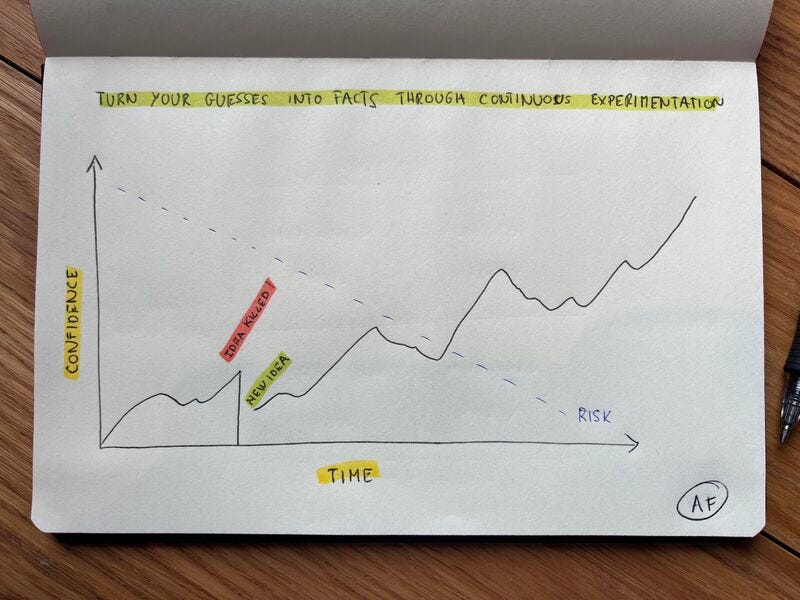Discovery is about turning your guesses into facts.
Do you have an idea?
Good. Map its assumptions, prioritize the most important ones, design assumption tests, run them, and learn.
The evidence you generate is converted into insights, which increases your confidence that you should pursue this idea - or not.
❌ But many teams run a bunch of interviews, maybe a sloppy survey - and take such learnings as high evidence.
Only to realize later that the product they've built is a failure.
Here's why:
They fail to understand that what people say they'll do is often different than what people actually do.
For example, if you're trying to discover your customers' willingness to pay, having a few people "telling" you that they will buy the product is usually not enough.
It's simply not strong enough evidence.
You need to evolve those conversations into tests that convert to commitments. Either in the form of:
⏳ Time (e.g. agree on joining a next call)
👑 Reputation (e.g. agree on being a reference customer for a pilot)
✍ Light financial commitment (e.g. letter of intent)
🤑 Heavy financial commitment (e.g. pre-sale, buy your MVP)
✅ In other words, you need to design higher-fidelity assumption tests as you progress.
This will increase your confidence, and reduce the risk of your idea - ensuring that:
- People want it (desirability)
- There's a big enough market for it (viability)
- Enough people are willing to pay X for it (desirability & viability)
- You should build it (viability)
- People can flawlessly use it (usability)
- You can indeed build and deliver it (feasibility)
.
.
.
Note 1: How risky is your idea? How much risk do you want to take? The answer to this will inform how much time and money you should spend.
Note 2: Killing ideas is an excellent indicator of progress and a strong culture of discovery - usually correlated with success. Fall in love with the problem you're trying to solve, not the idea you have today.
*model adapted from David Bland. If you haven't yet studied David's work, make sure you do and read the book "Testing Business Ideas".
If you found this reflection valuable, consider subscribing 👇 to support my work


